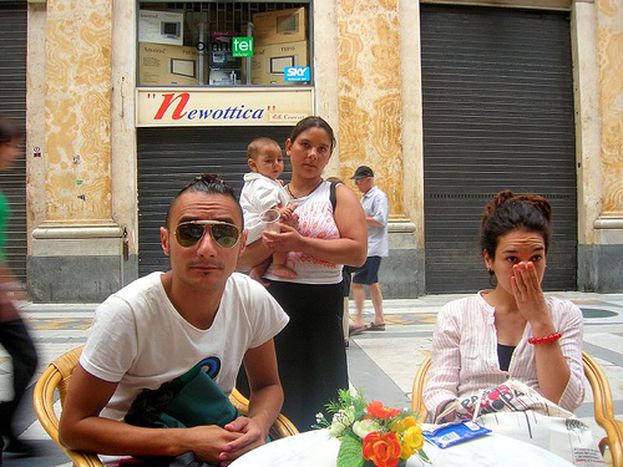
Europe’s law against racism
Published on
Translation by:
 Fiona Herdman Smith
Fiona Herdman Smith
On 28 November Jacques Barrot, the European commissioner for justice and security, announced the approval of the framework decision on racism. However, it will take two years to be integrated into national legislation. Plus videos
‘Racism and xenophobia should have no place in Europe and will be punished severely, with hard and effective measures, because intolerance is a direct violation of the principles of freedom, democracy and respect for human rights and fundamental freedoms on which the European Union was founded,’ Barrot said. The framework decision approved on 28 November foresees between one and three years imprisonment for anyone who publicly incites racial hatred and xenophobia, including through the distribution of texts, photos or other material directed against a group or an individual because of their race, colour, religion, nationality or ethnic origin, or who denies or crudely minimises genocide, war crimes and crimes against humanity. But is it too late for Italy, which fingerprints its Roma gypsy population?
The Roma: a humanitarian and political emergency
‘The situation in Italy is a humanitarian emergency and should also be a political emergency. But politicians are exploiting the problem by taking a unanimous stance – there is no difference between the right and the left’s stance on the Roma,’ explains Roberto Malini, one of the heads of Everyone, a group which deals with the rights of the Roma people. He claims to be both pleased and worried about the law passed by the European parliament on 28 November.
'The Roma are like prisoners in our country'
‘Finally Europe has sent out a strong signal, now the Italian government will have to take notice one way or another. Roma communities in Italy have been decimated; the only ones left are in (the Adriatic town of ) Pesaro and Florence, where activism is stronger. There is also a community in Milan, but it has already changed. The community at Casilino 900 (Roma camp) in Rome is at risk of being driven out. The few remaining Roma live in squalid conditions and are afraid to speak out because they have been threatened by the local authorities. In reality two generations of Roma (those who arrived in the seventies and nineties) have disappeared. Now, only the most recent generation (who arrived from Romania) are left. They would like to leave but can’t for economic reasons, so they are like prisoners in our country.’
In an exodus, thousands of gypsies left Italy in less than four months. ‘They are going to Spain where the strong Roma community is accepted, also to France. The French government is encouraging repatriation by offering an allowance of 3, 200 euros (£2, 892). Conversely, Germany is strictly controlling entry into the country. Others are simply returning to their nation of origin, such as Hungary or Romania. Those countries should be helped to encourage the reintegration of Roma and prevent further demonstrations of intolerance.’
This is a problem that affects the whole of Europe; there was a demonstration outside the Italian embassy in Spain against the persecution of Roma in Italy, according to Juan de Dios Ramirez, a former MEP of Roma origin, who was responsible for the commission for minorities in Europe.
Italy has razed three quarters of its Roma camps to the ground in only six months
Like the Everyone group, Hungarian MEP Viktoria Mohacsi has taken an interest in the new law. ‘I travelled around the whole of Europe to analyse and observe conditions in Roma camps. I never saw such a degree of human rights violations as that which my people are subjected to by the Italian government,’ she wrote in her report entitled Journey across the Italy of racial hatred. ‘In addition to poverty, inequality and segregation, I witnessed ethnic operations similar to those of the Third Reich. The authorities take children away from their parents through iniquitous means to prevent Roma families from living in Italy and raising their children there.’
Two years – the time it will take for the 27 member states to incorporate the European regulation into their national legislation – seems a long time, in particular for Italy, which has razed three quarters of its Roma camps to the ground in only six months.
Translated from Una legge europea contro l’odio razziale


